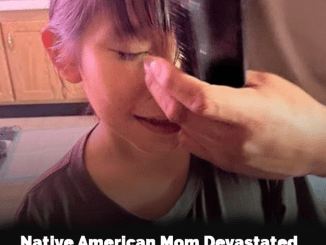Hannah Murray, best known for her role as Gilly in Game of Thrones and Cassie Ainsworth in Skins, is stepping forward with a deeply personal story that has shocked many. In her upcoming memoir, the 35-year-old actress reveals that she was sectioned following her involvement in a manipulative cult. Her book is expected to be released in 2026, promising to shed light on the dark side of her experience and offer insights into the psychological entrapment she endured.
Hannah Murray’s Journey from Success to Struggle

Hannah Murray rose to fame with her portrayal of the troubled and endearing Cassie in the British teen drama Skins, followed by her role as the resilient Gilly in the global hit Game of Thrones. Despite her early success, Murray decided to take a break from acting to study English Literature at Queen’s College, Cambridge University. This decision marked a temporary step back from the limelight as she sought intellectual fulfillment outside the entertainment industry.
However, it wasn’t until her recent announcement that the public learned about a darker chapter of her life—one marked by psychological manipulation and eventual sectioning.
The Memoir: A Personal Revelation of Cult Involvement
Set for a summer 2026 release, Murray’s memoir will be published by Hutchinson Heinemann, a prestigious publishing house that secured the rights after a competitive 13-way auction. Murray described her memoir as a “deeply personal story” that has weighed on her for years, emphasizing how vital it feels to share it now.
- Publisher’s Insight: Hutchinson Heinemann describes the book as an exploration of the “lure” of individuals and organizations that offer salvation under the guise of wellness. The memoir promises to delve into how such entities exploit vulnerabilities, hiding behind deceptive structures designed to appear supportive and nurturing.
- Themes Explored: Murray’s story will tackle the blurred lines between reality and illusion, examining what people are willing to believe when they feel lost or vulnerable. It’s expected to offer a broader critique of how cult-like organizations can exploit individuals in search of connection or self-improvement.
What Led Hannah Murray to Be Sectioned?
While specific details of Murray’s ordeal remain undisclosed, her memoir will likely provide a raw account of her mental and emotional state during this challenging period. Being sectioned—compulsorily detained under mental health laws for psychiatric treatment—often results from severe mental health crises or the need for immediate safety. It is a legal measure taken to protect the individual and others, but it also carries a significant emotional toll.
- Psychological Manipulation: Cults often use psychological tactics to create dependency, making individuals believe that they cannot function or thrive without the organization’s guidance.
- Isolation and Control: Murray’s story will likely explore how isolation, intense pressure, and manipulation contributed to her declining mental health, ultimately leading to the need for psychiatric intervention.
Her experience is expected to resonate with others who have faced similar entrapments, whether within organized groups or in toxic relationships.
The Cult’s Deceptive Promise of ‘Wellness’

The publisher’s description hints at how the cult marketed itself as a source of wellness and personal growth, a common tactic used by such organizations. Cults often prey on individuals’ desire for self-improvement or spiritual fulfillment, presenting themselves as solutions to life’s problems.
- Wellness Culture’s Dark Side: In recent years, the wellness industry has faced criticism for fostering environments where unchecked gurus can exploit followers. This exploitation can manifest in various forms, from financial manipulation to emotional control.
- Targeting Vulnerabilities: According to experts, cults are adept at identifying and exploiting personal vulnerabilities. They promise transformation, healing, and a sense of belonging—often attracting those who feel lost or disillusioned with mainstream society.
Murray’s memoir will likely provide a firsthand account of how she was drawn into this deceptive cycle and how it impacted her mental health.
Reflections on Her Acting Career and Life After Game of Thrones

Murray’s involvement in the cult coincided with the end of Game of Thrones, a monumental series that concluded in 2019. In previous interviews, she likened the conclusion of the show to “the end of school or university,” signifying a major transition in her life.
- The Post-Thrones Void: It’s possible that the post-Thrones void contributed to Murray’s vulnerability. Sudden changes, whether in personal life or career, can make individuals more susceptible to manipulation, as they seek meaning or structure in unfamiliar circumstances.
- Return to Academia: Her choice to study English Literature at Cambridge may have been an effort to ground herself amidst the chaos of her acting career. However, it’s evident that this grounding was not enough to shield her from the predatory nature of the cult she became entangled with.
The memoir will likely delve into how her acting career and life transitions intersected with the allure of the cult, providing a comprehensive view of the psychological impact it had on her.
What This Memoir Means for Survivors of Cults
Murray’s decision to share her story is not just about recounting her personal experience; it’s also about offering a voice to others who have endured similar situations. By shedding light on the manipulative tactics used by cults, her memoir aims to raise awareness about the importance of mental health, emotional support, and resilience.

- Empowerment Through Storytelling: By speaking out, Murray is joining a growing list of public figures who are breaking the silence about cult involvement and mental health struggles. Her memoir could serve as a source of strength for others who have felt trapped or manipulated.
- A Call for Mental Health Awareness: Murray’s story underscores the need for better mental health resources and support systems for those recovering from psychological abuse, whether in cults, toxic relationships, or other coercive environments.
Conclusion
Hannah Murray’s upcoming memoir promises to be a powerful exploration of how vulnerability can be exploited by manipulative organizations disguised as wellness communities. As the actress bravely shares her experience of being sectioned after cult involvement, she aims to offer insight into the dangers of unchecked manipulation and the complex path to recovery.
This memoir not only marks a new chapter in Murray’s career but also serves as a critical commentary on the dark side of the wellness industry and cult-like organizations. Her story is a testament to the resilience of the human spirit, the importance of mental health support, and the value of breaking the silence.


